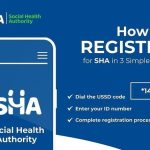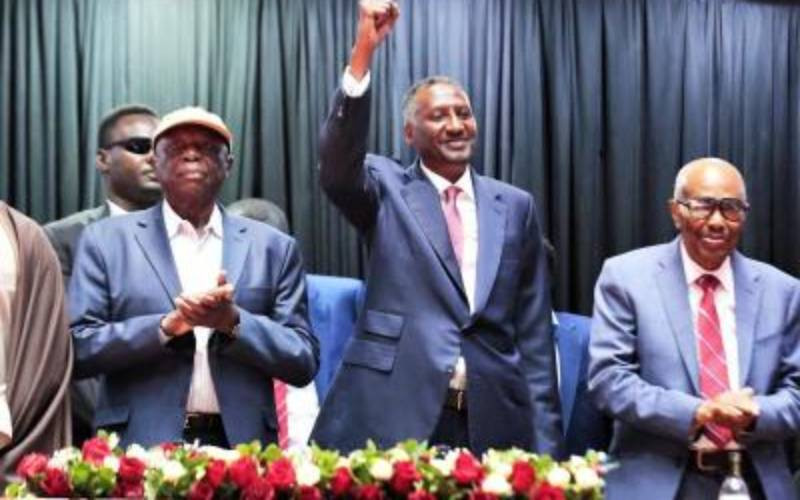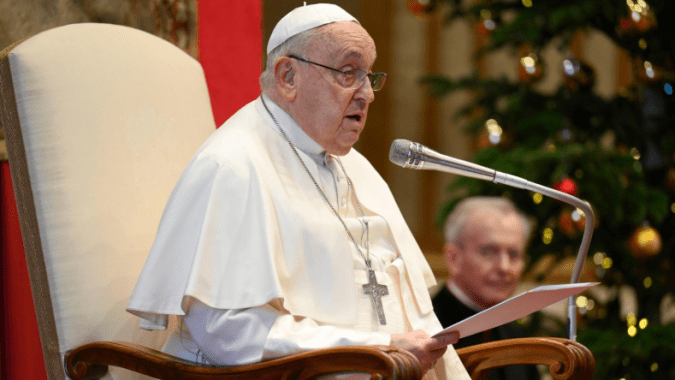 The Social Health Authority (SHA) now has access to various government databases, including mobile money transactions, Kenya Power payments, and Kenya Revenue Authority records, in a bid to identify self-employed individuals underpaying their health premiums.
The Social Health Authority (SHA) now has access to various government databases, including mobile money transactions, Kenya Power payments, and Kenya Revenue Authority records, in a bid to identify self-employed individuals underpaying their health premiums.
The Ministry of Health has flagged cases where Kenyans misrepresent their financial status through the Means Testing Tool—an online form used to determine contributions—by declaring themselves as landless or living in impoverished conditions.
Cabinet Secretary for Health, Dr. Deborah Mlongo, announced that SHA will cross-check financial data with records from the National Transport and Safety Authority (NTSA), immigration department, and the Kenya Agricultural Management and Information System (KIAMIS).
The aim is to track individuals with assets, such as vehicles and farms, who claim to be unable to afford higher premiums.
“We have a new algorithm under development that will improve the accuracy of means testing by triangulating data across multiple government agencies,” Dr. Mlongo stated during the first health summit hosted by Deputy President Kithure Kindiki.
SHA has also linked its systems with the Kenya National Bureau of Statistics (KNBS), Hustlers Fund, Insurance Regulatory Authority, and Communications Authority to verify income levels through mobile phone activity and other financial data.
Increased Monthly Premiums for Informal Workers
Currently, self-employed and jobless Kenyans contribute an average of KSh560 per month. However, the new system aims to raise this figure to KSh880, significantly higher than the KSh300 minimum pledged during the 2022 election campaigns.
Dr. Mlongo noted that previous loopholes allowed individuals to cheat the system, leading to lower-than-expected premium collections. The current average is Sh560, yet the system needs an average of Sh880 from the means testing tool for SHA to be sustainable according to Dr. Mlongo.
Enforcement and Implications
Deputy President Kindiki has directed SHA to implement the new algorithm by February 28, emphasizing that this move will make premium contributions more predictable. “From March 1, we will roll out a national campaign to increase membership and ensure premiums are sustainable,” he said.
Currently, SHA has 19.5 million registered members, but only 3.5 million actively contribute—primarily those in formal employment whose employers deduct 2.7% of their salaries. Meanwhile, 1.5 million indigent members have their premiums fully covered by the government, while 14.5 million rely solely on free primary healthcare services.
With premium increases, there are concerns that many Kenyans may struggle to keep up with payments, leading to a rise in defaults. The now-defunct National Health Insurance Fund (NHIF) faced similar challenges, with 80% of informal sector members unable to pay their voluntary Sh500 monthly contributions consistently.
While SHA allows members to appeal high premium assessments, appeals below Sh1,000 are typically dismissed. The Kenya Kwanza government initially set the minimum SHA contribution at Sh300 to encourage more informal sector workers to join, but financial realities may make continued compliance difficult.
With 39.8% of Kenyans living in poverty, according to the KNBS, ensuring that SHA remains accessible while financially sustainable remains a delicate balancing act.









